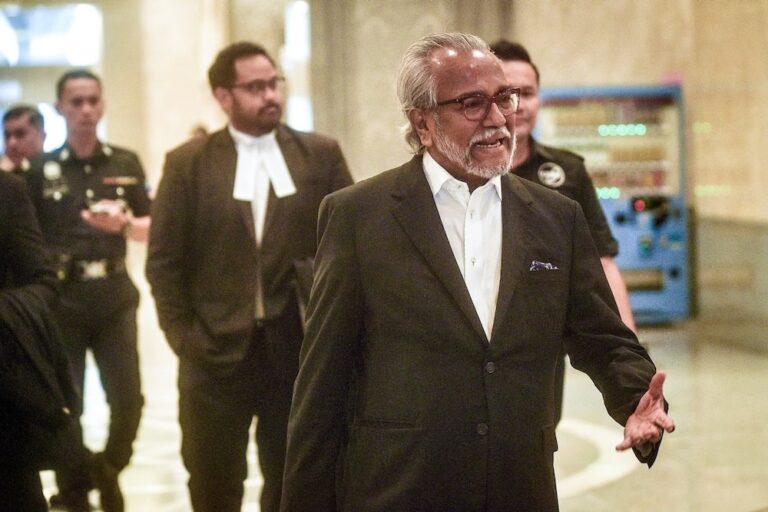(SEAPA/IFEX) – A Royal Commission of Inquiry into a video clip that implied interference in senior judicial appointments in Malaysia is threatening to hold in contempt a human rights organisation and an opposition leader over their criticisms about the ongoing hearing. SEAPA shares the concern of its local partner, the Centre for Independent Journalism, who […]
(SEAPA/IFEX) – A Royal Commission of Inquiry into a video clip that implied interference in senior judicial appointments in Malaysia is threatening to hold in contempt a human rights organisation and an opposition leader over their criticisms about the ongoing hearing.
SEAPA shares the concern of its local partner, the Centre for Independent Journalism, who said the Commission’s narrow view of “contempt” potentially violates freedom of expression, as guaranteed under Article 10 of the Constitution.
On 30 January 2008, Mahadev Shankar, a member of the Commission, objected to a press statement by human rights organisation Aliran ( http://www.aliran.com/content/view/414/11/ ) and an independent web-based daily’s report of opposition leader Anwar Ibrahim’s press conference that alleged there were “unseen hands” manipulating the inquiry ( http://www.malaysiakini.com/news/77587 ).
Aliran’s statement questioned the Commission’s decision not to call as witnesses Anwar and four others involved in bringing to public light on 19 September 2007 the existence of a video that allegedly showed a lawyer brokering the appointments of senior judges who are “friendly” to the ruling government. Prior to the setting up of the Commission, three of the five – Anwar and fellow opposition party members Sivarasa Rasiah and Sim Tze Yin – were ordered by the Anti-Corruption Agency to reveal the source of the video; all three had refused to comply despite being threatened with a jail term and a fine.
Aliran also criticised the Commission’s line of questioning as seemingly in aid of one of those implicated by the video.
Voicing disappointment at the Commission’s threats, CIJ stressed that it was important to allow public debate and discussion on the inquiry to help instill public faith in the judiciary, which is the core issue at stake.
“Smothering dissent under the catch-all provision of ‘contempt of court’ will not quell public dissatisfaction or concern about the judiciary,” said CIJ in a 4 February 2008 release ( http://www.cijmalaysia.org/index.php?option=com_content&task=view&id=288&Itemid=8 ).
The establishment of the Commission, whose full title is “Commission of Inquiry on the Video Clip Recording of Images of a Person Purported to be an Advocate and Solicitor Speaking on the Telephone on Matters Regarding the Appointment of Judges”, was itself controversial.
Critics questioned the credibility of the chairperson, former chief judge of Malaya, Haidar Mohd Noor, who allegedly assisted the executive in subverting due process in the 1988 firing of then lord president Salleh Abas, after which confidence in the judiciary plummeted and has yet to recover even today.


